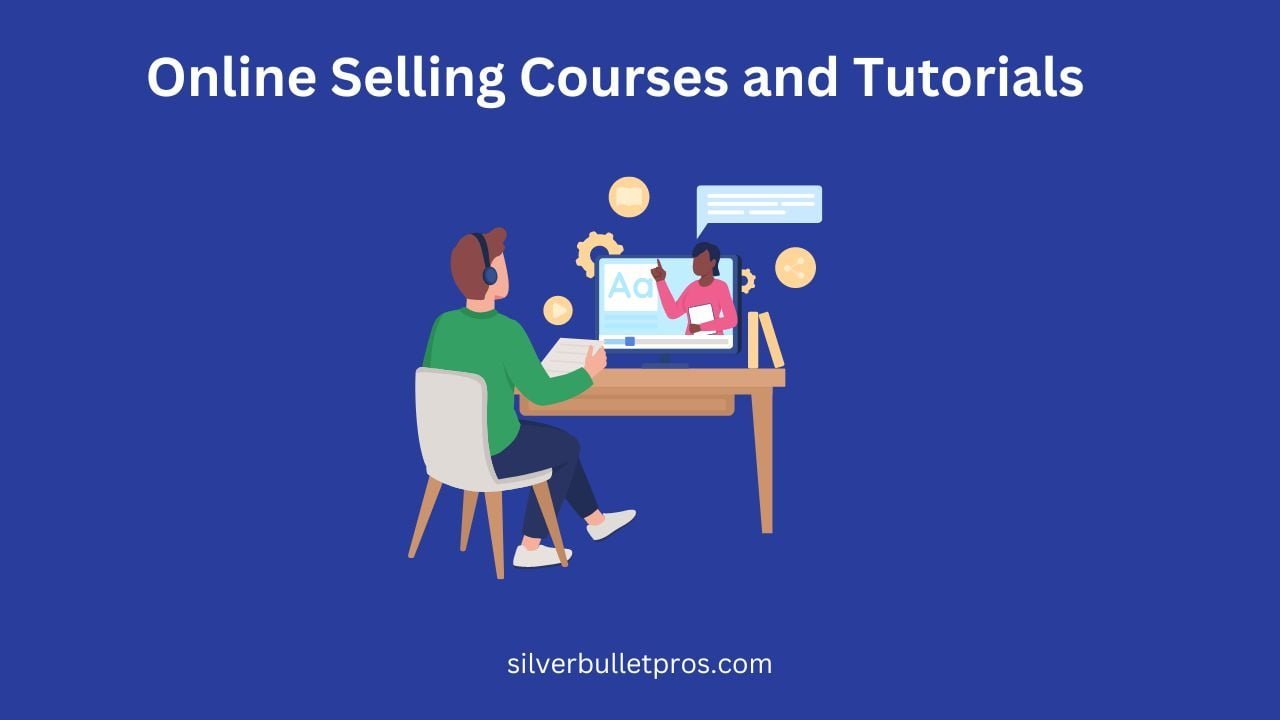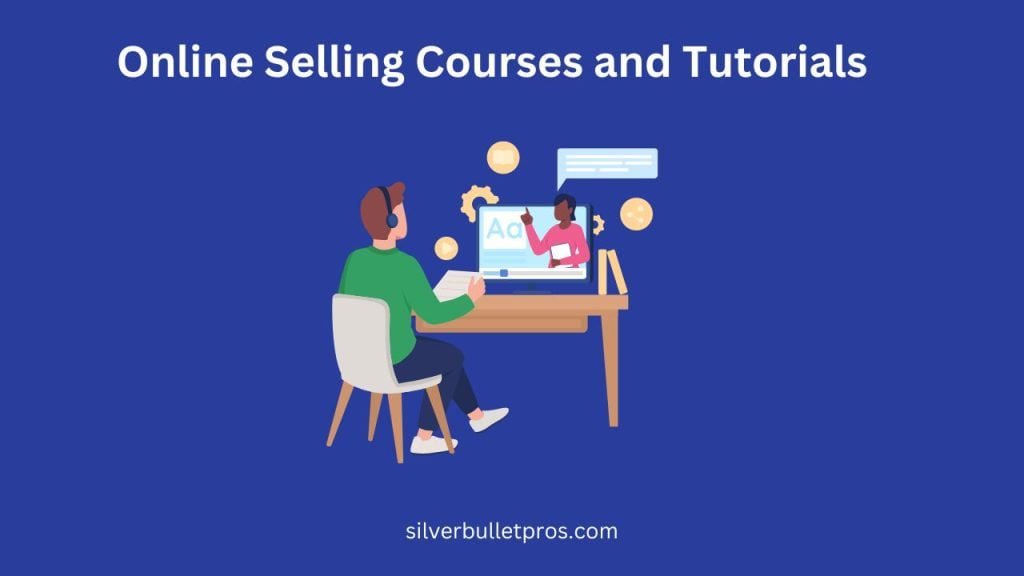

In today's digital age, the online education market has exploded, presenting numerous opportunities for individuals and businesses to monetize their expertise by selling courses and tutorials. Whether you're a subject matter expert, a skilled instructor, or an entrepreneur looking to diversify your income streams, creating and selling educational content online can be a lucrative endeavor. From leveraging online course platforms to hosting live webinars, monetizing your blog with courses, creating and selling your own standalone offerings, or offering group coaching programs, there are various avenues to explore. This comprehensive guide will delve into five effective ways to make money online by selling courses and tutorials, highlighting the benefits, best practices, and top platforms for successful implementation. Additionally, we'll provide insightful tips to help you navigate the world of online education and maximize your potential for success.
Here, I have given five major ways to make money online by using course platforms, hosting live webinars, monetizing your blog with courses, creating and selling your own courses, and offering group coaching programs. The five ways are discussed below.
Online Course Platform: A website or application that allows instructors to create, host, and sell online courses and educational materials.
Live Webinars: Interactive online sessions or seminars conducted in real-time, where the instructor can present and interact with attendees.
Monetize Your Blog: The process of generating revenue from a blog through various methods, such as offering paid courses or tutorials.
Create and Sell Your Own Courses: Developing and selling self-paced, pre-recorded courses or educational materials independently, without relying on a third-party platform.
Group Coaching Programs: Educational programs or workshops offered to small groups, often providing personalized guidance and support from the instructor or coach.
Online Education Market: The industry that encompasses the creation, distribution, and consumption of educational content and resources over the internet.
Subject Matter Expert: An individual with deep knowledge and expertise in a specific subject, topic, or field.
Educational Content: Materials such as courses, tutorials, videos, e-books, or other resources designed for teaching and learning purposes.
1. Use an Online Course Platform:
Leveraging an online course platform is an effective way to reach a wide audience and monetize your expertise. These platforms provide a user-friendly interface for creating, hosting, and selling courses, eliminating the need for technical expertise or extensive marketing efforts. Popular online course platforms such as Udemy, Teachable, and Coursera offer robust features such as customizable course templates, integrated payment processing, and built-in marketing tools. By utilizing an online course platform, you can tap into a global audience of learners, establish yourself as an authority in your niche, and generate passive income through course sales.
2. Host Live Webinars:
Hosting live webinars is a dynamic way to engage with your audience in real-time and monetize your expertise. Webinars allow you to deliver interactive presentations, demonstrations, or workshops to a targeted audience, providing valuable insights and actionable takeaways. Platforms like Zoom, GoToWebinar, and WebinarNinja offer easy-to-use tools for scheduling, promoting, and conducting webinars, with features such as screen sharing, Q&A sessions, and audience polling. By charging a registration fee or promoting premium content during your webinar, you can monetize your expertise and generate revenue while providing valuable educational content to your audience.
3. Monetize Your Blog with Courses:
Monetizing your blog with courses is a strategic way to capitalize on your existing audience and expertise. If you already have a blog with a loyal following, you can create and sell online courses that complement your blog content. This allows you to leverage your blog's traffic and credibility to attract course participants and generate revenue. You can promote your courses through blog posts, email newsletters, social media, and other marketing channels, offering valuable insights and educational content to your readers. By monetizing your blog with courses, you can diversify your income streams, expand your audience reach, and establish yourself as a thought leader in your industry.
4. Create and Sell Your Own Courses:
Creating and selling your own courses gives you full control over the content, pricing, and marketing strategies, allowing you to maximize your earning potential and build a sustainable online business. Whether you're an expert in photography, fitness, marketing, or any other niche, you can create courses that showcase your expertise and provide value to your audience. To create successful courses, identify a specific niche or problem that your target audience is facing, and develop comprehensive, high-quality content that addresses their needs. You can sell your courses through your own website, online course platforms, or third-party marketplaces, using various pricing models such as one-time payments, subscriptions, or bundles. By continuously refining your courses based on feedback and market demand, you can attract more customers, increase sales, and establish yourself as a trusted authority in your field.
5. Offer Group Coaching Programs:
Offering group coaching programs is an effective way to leverage your expertise and provide personalized support to a group of clients or students. Group coaching programs typically involve a series of live sessions, workshops, or mastermind meetings where participants receive guidance, accountability, and feedback from the coach and their peers. By hosting group coaching programs, you can reach more clients, create a sense of community, and generate recurring revenue streams. To launch a successful group coaching program, identify a specific niche or topic that aligns with your expertise and target audience's needs, and develop a structured curriculum or agenda. You can promote your group coaching programs through your website, social media, email marketing, and other channels, offering valuable benefits and incentives to attract participants. By providing valuable insights, fostering collaboration, and delivering tangible results, you can establish yourself as a trusted coach and build a thriving community of clients or students.
What are the Benefits of Selling Courses and Tutorials Online?
Selling courses and tutorials online offers several key benefits. It can provide a steady stream of passive income once the course is created. Since digital products can be easily replicated, online courses are highly scalable and can reach a global audience with minimal overhead costs. Additionally, creating and selling online courses allows for great flexibility in terms of working hours and schedule.
How to Create and Sell a Successful Online Course?
To create and sell a successful online course, start by identifying a profitable niche and topic based on market demand and your expertise. Then carefully plan and structure the course content in an effective, logical manner. Create high-quality multimedia materials like videos, PDFs, and quizzes to engage students. Market and price the course strategically to attract enrollments. Provide excellent student support and continually improve the course based on feedback. Implement sales funnels and promotional tactics to drive enrollment numbers.
What are the Best Platforms for Selling Courses and Tutorials?
Some of the most popular and highly recommended platforms for selling online courses include Udemy, a vast marketplace for various topics, Skillshare for creative skills courses, Teachable for hosting and selling your own courses, Thinkific with powerful marketing tools, and the all-in-one Kajabi platform for courses and memberships.
What Are Some Tips for Selling Courses and Tutorials Online?
To succeed at selling online courses, build an engaged audience and email list to promote your offerings. Provide valuable free content like webinars to attract potential students. Leverage social media and influencer marketing for increased visibility. Deliver excellent customer support and nurture your student community. Continuously update course content to stay relevant. Experiment with pricing strategies such as bundles or payment plans. Analyze performance data and student feedback to optimize your courses over time.